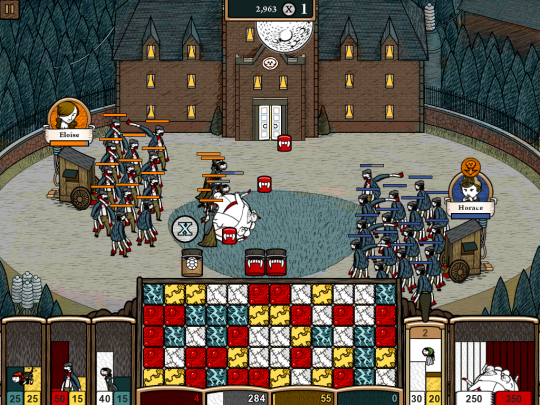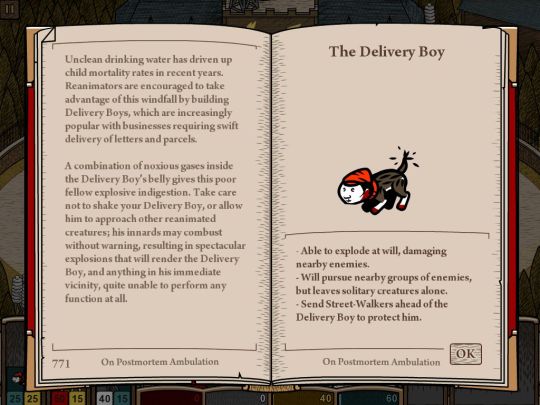
Featured Blog | This community-written post highlights the best of what the game industry has to offer. Read more like it on the Game Developer Blogs or learn how to Submit Your Own Blog Post
Early Success Considered Harmful
Early success, and dealing with the sophomore (junior/senior/...) slump.

(Reposted from my game development blog)
Unfortunately, the first game I designed was a success. (An obnoxious way to begin a story! But bear with me.)
It was a product of serendipity. I hadn’t planned on being a game designer, but I took a programming job at Three Rings right as the studio was scaling up for an ambitious, pre-Facebook social gaming platform. The platform needed content, and all newly-hired programmers were tasked with building a small game for it. My contribution was Corpse Craft.
Corpse Craft didn’t have a design doc, but if it had, it could’ve just said “real-time strategy with match-3 instead of unit micromanagement.” It was a simple idea that emerged more or less fully-formed.* Production didn’t involve a whole lot of iteration because almost everything just worked the first time. Game design: so easy!

And it was a success, albeit a mild one: it got a bit of press attention, some nice reviews, and drove players to the site. But it was huge for me. Besides discovering that “programmer/designer” was more personally fulfilling than “programmer” had ever been, I also learned that I was a precociously talented game designer who would go on to create hit after hit for the rest of my blindingly bright professional future. So that was pretty sweet.
And then, following Corpse Craft, I worked on a number of games that were simultaneously much harder to design and not nearly as good. A series of disappointments. It didn’t take long to learn that my first game had been an anomaly.
So - not a genius after all, sadly. And in my darker moments, it was easy to believe I was, in fact, just a fraud who’d happened to get lucky once.
A brief aside into a bit of family lore: two of my brothers, Micah and James, are twins. They’re now both successful adults, but back in elementary school, Micah was a fast learner for whom everything came quickly and easily and James had a learning disability. For James, developing certain skills, like reading, involved lots of painful frustration. He needed extra time to do his work, and he worked with special-education tutors outside of school. Eventually, though, those early struggles paid off: in addition to completely overcoming his disability (hooray, neuroplasticity!) and catching up to his brother, he developed problem solving skills that, by high school, had him outpacing most of his peers.

I’ve been working on my current game, Antihero, for about two years, and it wasn’t until very recently that it became as fun, in my eyes, as Corpse Craft. The design has gone down a billion dead ends to get to this point.
With Corpse Craft, I thought I was Micah - and then reality kicked me in the balls. Antihero is my first indie project, and so I’m not beholden to any external deadlines. On one hand, this is a curse - external deadlines make you get shit done. But on the other, it means that the game gets the time that it needs to become something I like - and it turns out that getting to “something I like” takes an (unreasonably?) long time. Antihero is not the result of genius, but rather of constant, relentless, and seemingly-neverending playtesting and iteration (and also partly the result of after-school tutoring).
It’s the James approach to creativity, which is a better fit for me. Genius is something you either have or don’t, and I don’t. But I can develop my games by stubbornly banging on design problems for silly amounts of time, and sometimes, enough banging will result in a project that’s worth caring about.
With one exception: the original pitch involved a “Modest Proposal”-esque Swiftian setting in which street urchins were being rounded up and made to fight to the death for the amusement of the aristocratic class. I thought it was a clever satire, but a producer thought otherwise and wisely forbade us from pursuing that path.
(If you’re interested in running your own thieves’ guild, you can read more about Antihero, my in-development game, or follow me on Twitter.)
Read more about:
Featured BlogsAbout the Author(s)
You May Also Like







.jpeg?width=700&auto=webp&quality=80&disable=upscale)








